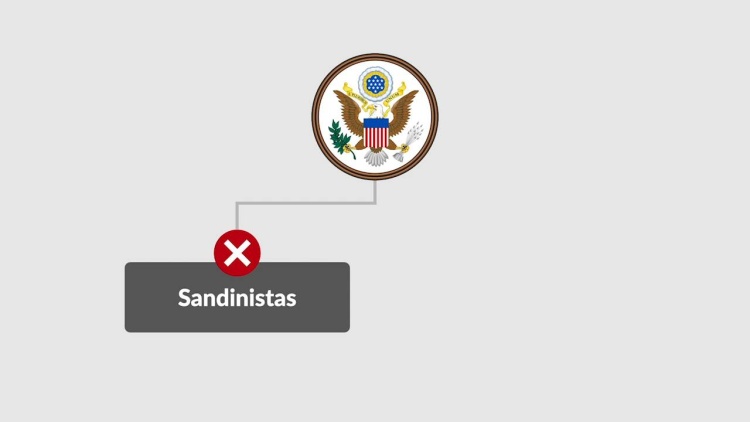Military and Paramilitary Activities in and Against Nicaragua (Nicaragua v. United States)
International Court of Justice
1986 I.C.J. 14, 103-23
- Written by Megan Petersen, JD
Facts
In 1984, Nicaragua (plaintiff) brought suit against the United States (defendant) charging violations of customary and treaty law as a result of the United States’ military and paramilitary activities within Nicaragua. Specifically, Nicaragua alleged the United States violated Article 2, paragraph 4 of both the United Nations Charter and customary international law by committing attacks on oil pipelines, storage and port facilities, and Nicaraguan air space; as well as training, arming, equipping, financing and supplying counter-revolutionary forces seeking to overthrow the Nicaraguan government. The United States withdrew from the proceedings, but noted its position that Nicaragua had supplied arms and other support from its territory to armed opposition to the government of El Salvador. The United States maintained that its activities against Nicaragua were committed out of its desire to provide collective self-defense for El Salvador and other Central American states allegedly threatened by Nicaragua. The International Court of Justice (ICJ) heard the case and first decided that it did not have jurisdiction over Nicaragua’s claims based on Article 2(4) of the U.N. Charter. However, it did exercise jurisdiction over Nicaragua’s claims that the United States violated principles of customary international law. The United States defended its actions by arguing it was entitled to invoke the principle of “collective self-defense” in customary international law which permits such actions by a State on behalf of other States that have experienced an armed attack. The ICJ considered this argument.
Rule of Law
Issue
Holding and Reasoning ()
Dissent (Schwebel, J.)
What to do next…
Here's why 907,000 law students have relied on our case briefs:
- Written by law professors and practitioners, not other law students. 47,100 briefs, keyed to 996 casebooks. Top-notch customer support.
- The right amount of information, includes the facts, issues, rule of law, holding and reasoning, and any concurrences and dissents.
- Access in your classes, works on your mobile and tablet. Massive library of related video lessons and high quality multiple-choice questions.
- Easy to use, uniform format for every case brief. Written in plain English, not in legalese. Our briefs summarize and simplify; they don’t just repeat the court’s language.





